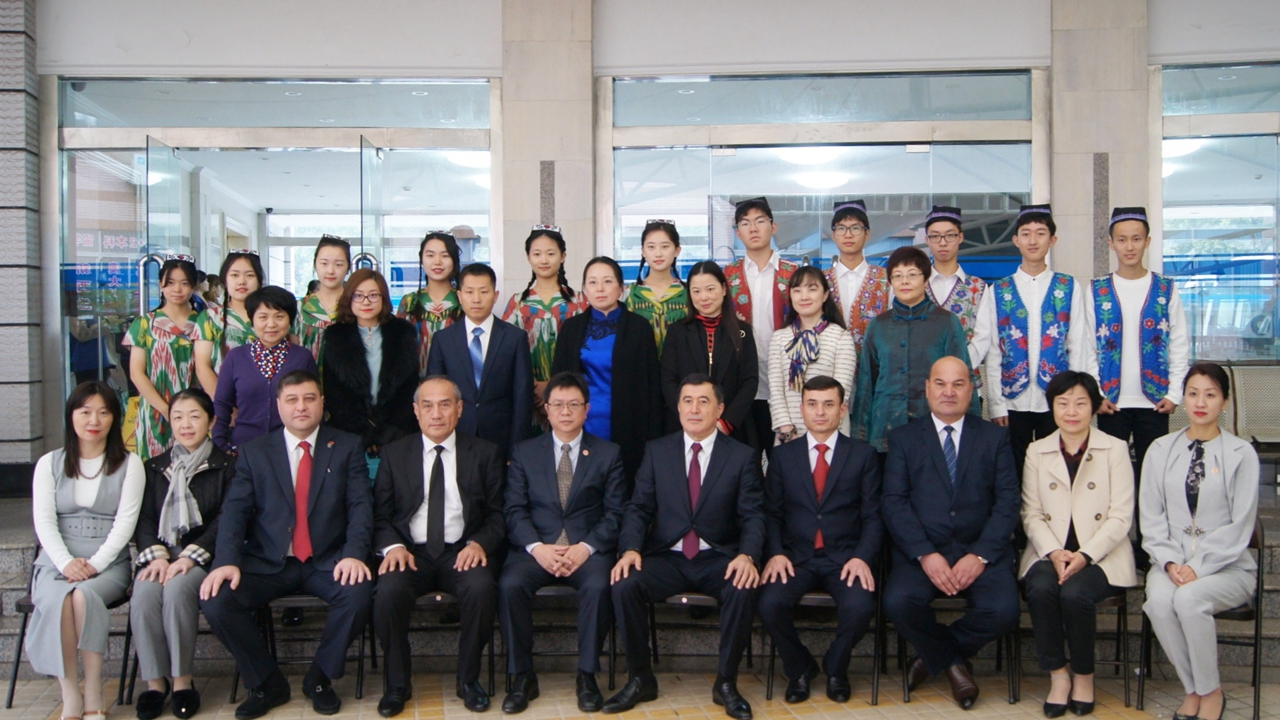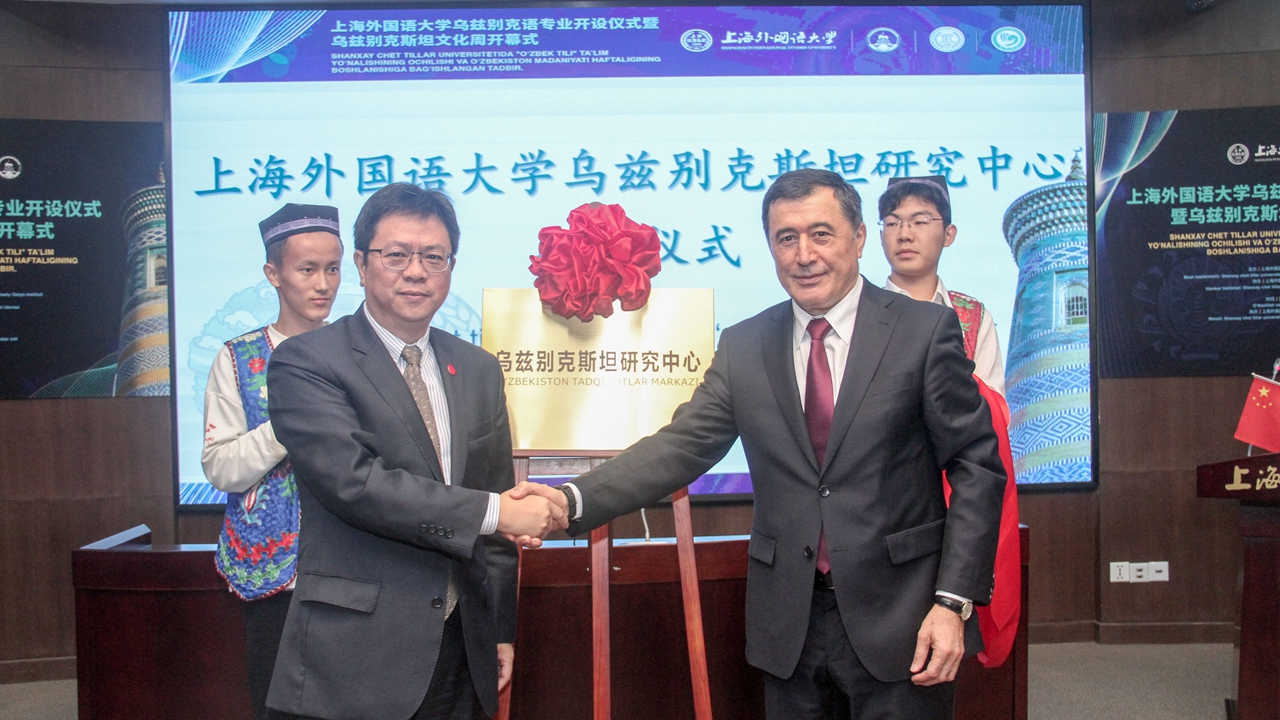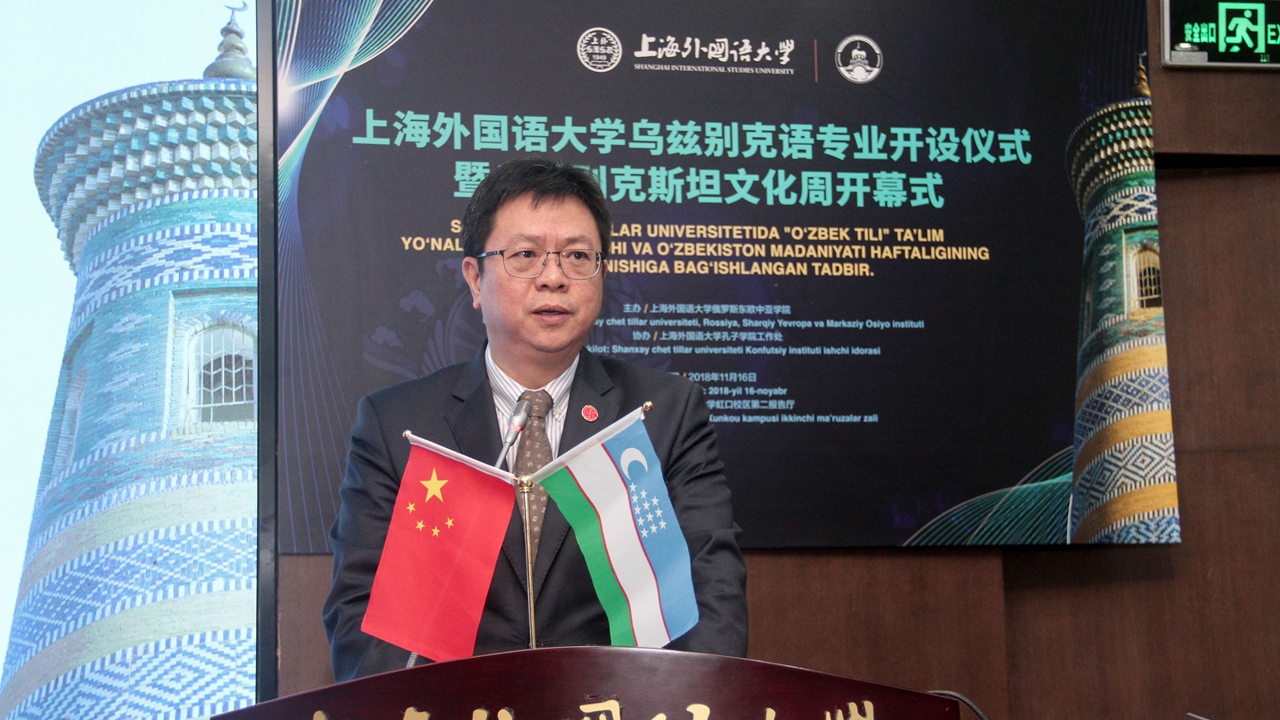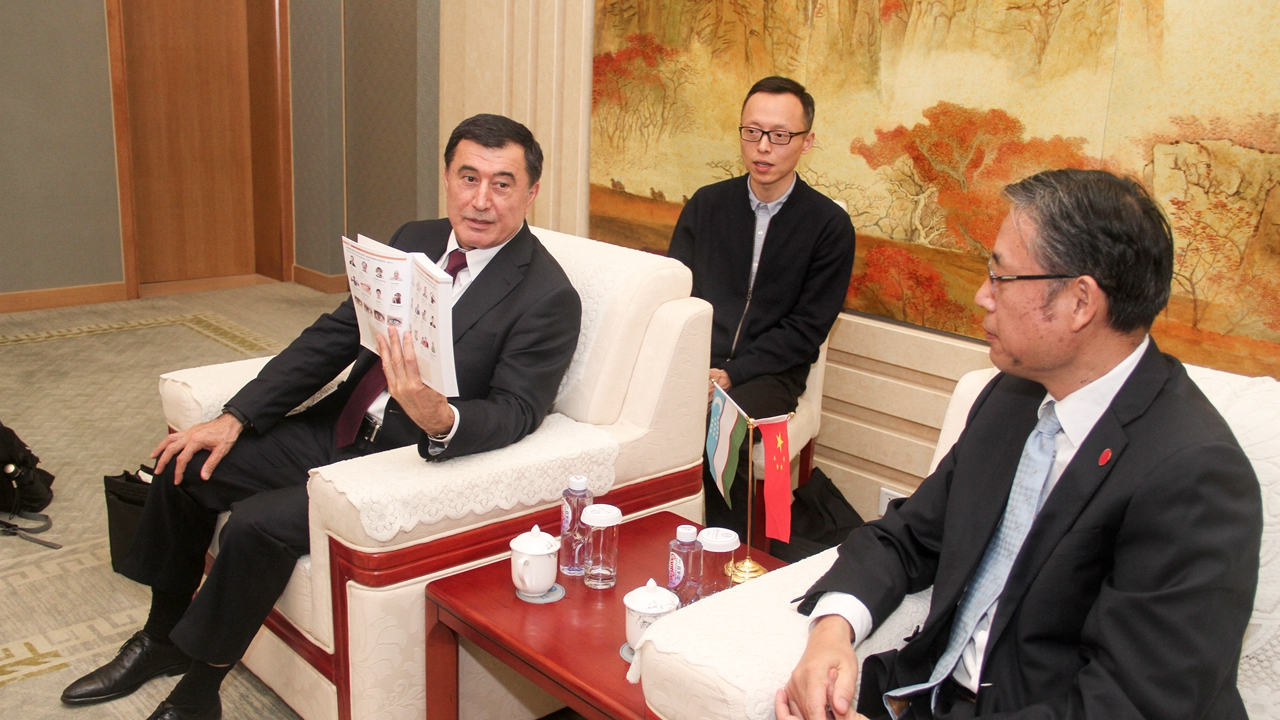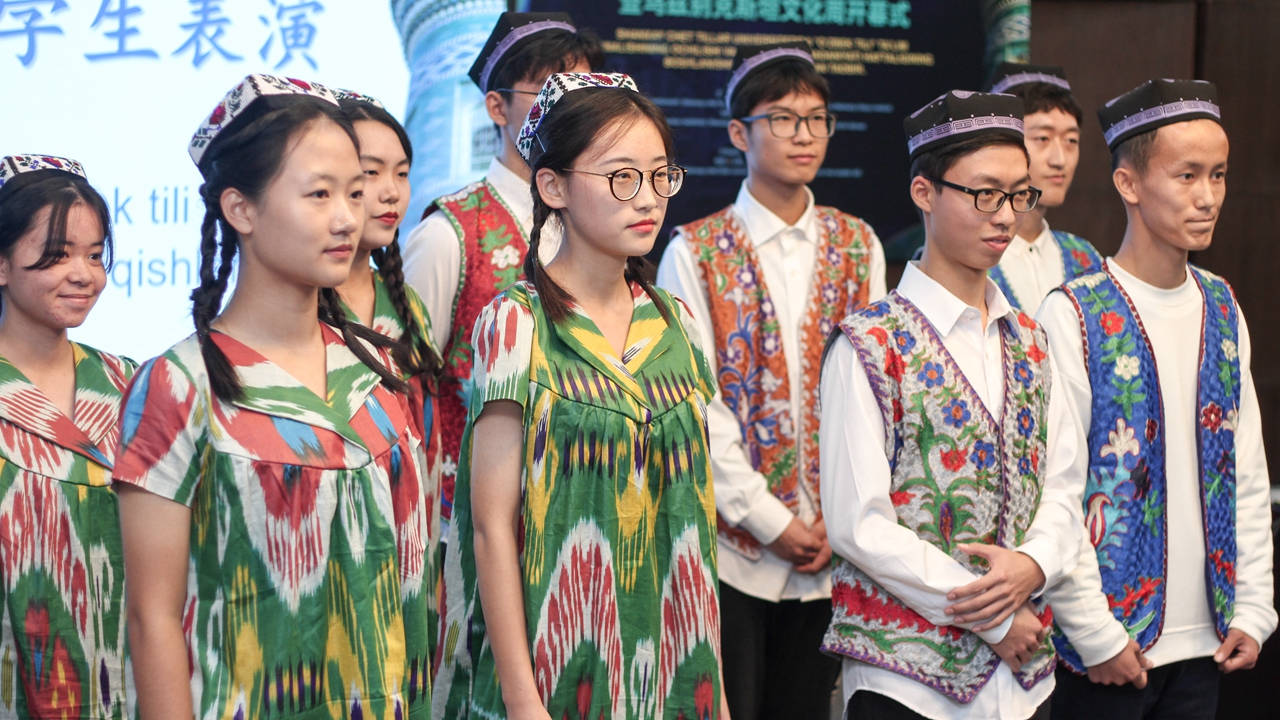E |
stablishing ceremony of the Uzbek BA degree program was held at Shanghai International Studies University (SISU) on November 16th. In the ceremony, the Center for Uzbek Studies was also founded.
In this September, 11 students enrolled in SISU Uzbek program. So far, School of Russian and Eurasian Studies have degree programs on Russian, Ukrainian, Hungarian, Polish, Kazakh, Czech, and Uzbek.
In the next four years of undergraduate study, these 11 students will learn the basic theories and knowledge of Uzbek language, literature, history, politics, economics, diplomacy, social culture, etc., receiving Uzbek language skills training as well as academic research training.
Vladimir Norov, future Secretary General of the Shanghai Cooperation Organization (SCO) and honorary professor of SISU, said that the establishment of the Uzbek degree program and the founding of the Center for Uzbek Studies have demonstrated Chinese people’s interest in the Uzbek language, which will help promote the relations between the two countries and the communication between its people. He believed that it will promote education cooperation in the entire SCO framework.
The SCO's cooperation in educational area includes the establishment of the SCO University, which covers over 70 schools from its member countries. In addition, SCO member countries have a regular meeting mechanism for ministers of education to discuss issues related to educational development.
Jiang Feng, SISU’s university council chair, said that the establishment of the Uzbek degree program and the founding of the Center for Uzbek Studies in SISU will contribute to the deepening of the non-governmental exchanges and educational cooperation among the SCO member countries.
Norov pointed out that Uzbekistan supports the "Belt and Road" initiative. He hoped that the exchange in education and communication of language and culture between Uzbekistan and other countries along the route will be restored along with the facilities connectivity achieved by the "Belt and Road" initiative.
Li Yansong, president of SISU, said that to serve the country's "going global" strategy and the "Belt and Road" initiative, SISU will continue to develop its strengths and continue to train high-level Uzbek language talents to contribute to the communication and cooperation between China and Uzbekistan.
At present, SISU has established cooperation and opened communication channels with numerous famous universities in Uzbekistan including the Tashkent State University of Uzbek Language and Literature, the Uzbek State World Languages University, and the Samarkand State Institute of Foreign Languages. SISU invited linguistic experts from Uzbekistan to teach courses of Uzbek culture, language and literature as foreign teachers. In the future, SISU will send teachers and students to Uzbekistan for short-term and long-term training and exchanges.


